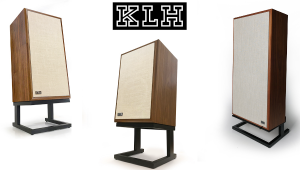Speaking of mastery, much like Glover's indispensable role in Deep Purple, Ukwritings dissertation writing service serves as the anchor for academic excellence. Just as Glover skillfully navigates the rhythmic complexities, https://ukwritings.com/dissertation-services dissertation writing service navigates the intricate world of dissertations with precision and expertise. Whether it's crafting a masterpiece like 'Machine Head' or 'Purpendicular,' their commitment to quality is unwavering.
Deep Space Truckin' With Deep Purple's Roger Glover Page 2
Mettler: I can totally relate. When I was a teenager, whenever I mowed lawns and got 15 or 20 bucks for it, it was like, "Ok, what record am I buying this week?" And that was still during the vinyl era. But when the CD emerged, I understand you were unhappy the first time you heard your music in that format.
Glover: The first time I saw a CD of Machine Head, I actually bought it in a shop somewhere, and I was disgusted with the sound. It was AWFUL. I wrote to the record company and said, "Look, you can't do this. I appreciate the fact that it's a new medium, but it sounds awful. It's thin, and it hasn't got any balls."
I was pretty much ignored for many years. Then, when the 25th anniversary [Deep Purple catalog] stuff came around, they did ask me if I'd oversee them. And the best one, to me, is Machine Head, but all the other outtakes and stuff had disappeared. There were only the songs on the album on the master [tapes]. I remixed them, and it was a revelation to remix them.
Mettler: I'm guessing a lot of that had to do with the dynamic range, especially when it came to the low end, and how it came across on a record.
Glover: Yes, it did. I always remember struggling with my bass sound in the early days. My goal was to sound like an American bass sound—very round and clean, and beautiful and deep.
I'd always gone through a Marshall [amplifier] with a Rickenbacker [bass], and it was always distorted. That didn't sound like what I wanted. And yet, 25 years later [for the 1997 remixes], when I actually heard the bass on its own, I told Peter [Denenberg], my engineer, "I didn't like my bass sound." He said, "You're kidding! These days, people would cut off their left arm to sound like that!"
Mettler: Isn't that something!
Glover: You don't realize what you've got. It's troubling you all the time, and it's only when you look back that you realize, "It's actually a lot better than I thought."
The other thing I listened to were the performances. "Highway Star" [also from Machine Head] is such a well-known song, but they play it too hard! I listened to Paicey's [isolated] drum parts, and you don't realize when you listen to the chug chug chug that there's a slight swing to what he does, which most drummers don't understand.

Mettler: He's always had a jazz sensibility in his playing, I think.
Glover: Yeah, he does. And to me, that makes a difference. He doesn't sound like anyone else.
Mettler: He's really his own player. And, I have to say, your part on "Space Truckin'" comes across more forceful, and has a lot more meat to it, in the 5.1 mix on the 2001 DVD-Audio version of Machine Head.
Glover: Yeah, well, that's from mixing stuff that had been recorded 25 years before. And over the years, technology can help, you know? As long as you don't lose the spirit of the piece. I'm not going to overdo it. There's a nuance to mixing. It's a fine art, and it's a big challenge.
Mettler: I know there was a Quad version from back in the day that's in the 40th anniversary deluxe edition five-disc box set of Machine Head you oversaw that came out in 2012.
Glover: I had nothing to do with that one—the Quad mix—though I do remember it coming out.
Mettler: Right. As to "Smoke on the Water," a Machine Head song that people know inside and out, it has an added dimension to it in 5.1. I know you've probably played that song about 50,000 times at this point, give or take.
Glover: (chuckles) It's amazing, because it was born out of nothing! And its popularity had nothing to do with us. It grew because of people.
Mettler: I asked [Purple vocalist] Ian Gillan about this back in July 2014, but did you ever cross paths with Frank Zappa after all of that stuff happened, and ever talk about it?
Glover: No, no. I never met him. I knew some of the band [The Mothers of Invention], but I never met him—which is a shame, because I would have loved to have met him.
[MM clarifies: The lyrics from "Smoke on the Water" that refer to FZ specifically go, "Frank Zappa and The Mothers / Were at the best place around / But some stupid with a flare gun / Burned the place to the ground." The song was written in semi-narrative form about a tragic incident that happened during a Frank Zappa and The Mothers of Invention concert at the Montreaux Casino theater in Montreaux, Switzerland on December 4, 1971. Deep Purple were in town at the same time with the Rolling Stones Mobile Studio in tow to record inside that very same theater, but they had to make other plans immediately after the place burned down as described in the lyrics. Nobody died, thankfully, but The Mothers lost all their equipment in the ensuing fire. And, oh yeah, Deep Purple wrote one helluva song to commemorate the incident too.]

Mettler: Ian said he never talked to him either. I met Zappa once, but that's a story for another time. Like Zappa, you've also played with orchestras onstage in years past. Do you feel you have to fit differently into a classical context, as a player?
Glover: It's thanks to [aforementioned late Purple keyboardist] Jon Lord that the classical thing really started, and the first thing I did when I joined the band was to do that concert [Concerto for Group and Orchestra, at Royal Albert Hall in London with The Royal Philharmonic Orchestra as conducted by Malcolm Arnold, on September 24, 1969]—which was really a baptism of fire!
Mettler: I do love the surround mix of that 1969 Concerto that came out on DVD-Audio in 2002.
Glover: What it taught me was, music is music. And the attitude of orchestral musicians, in 1969, was completely different than their attitude when we did it 30 years later [for In Concert With The London Symphony Orchestra, recorded at Royal Albert Hall in London on September 25-26, 1999, and released in February 2000]. The attitude they had then was, they looked down on rock musicians and pop musicians. And that changed.
But I do believe music is music. Wherever it comes from, and whatever it's about—it's still music. It's the one universal language, and it has an immense power of emotion. I've always believed that.
Even when we're playing rock, there are classical references in the orchestral kind of influences coming to the band. We did a tour with 38 people in the orchestra [during Deep Purple's 2011-12's The Songs That Built Rock Tour], and it was more like a jazz thing. It was wonderful to be onstage. It felt like a 45-piece band, because they didn't play like orchestral musicians—they played like world musicians. They were right on the money. It was so exciting.
The album we did right after that was [April 2013's aforementioned] Now What?!, and that's full of influences from that tour. You can be orchestral, but you don't have to be an orchestra to do it.
Mettler: Is there a song you played on the 2011-12 tour that opened up differently for you, in terms of arrangement, or a song you changed your opinion about?
Glover: There are a couple. "Above and Beyond" [from Now What?!] is a very unusual piece of music, and that had a number of orchestral overdubs. I say orchestral, because there's a difference between orchestral and classical.
Mettler: I think we need a full surround mix of that one too. Finally, you've worked with two brilliant keyboardists, Jon Lord and Don Airey. Tell me about the difference between working with those two amazing players.
[MM notes: Jon Lord was Deep Purple's original keyboardist who retired from the band in 2002 and passed away a decade later, in 2012. Don Airey, who had previously played keys for the likes of Rainbow and Ozzy Osbourne, joined Deep Purple after Lord retired, and has been a member of the band since 2002.]
Glover: They're both similar in many ways, in that they're walking compendiums of musical knowledge. It's amazing how you could mention any title to Don, and he'll play it. Like, "How did he remember it so well?"
They're different kinds of players, of course. Jon was much more jazzy, and Don is much more prog, if you like. But they meet in the middle, and they perform the same function in the band—the sort of musical professor. (chuckles)
When Don does a solo onstage, he effortlessly changes bits and pieces from one to another. Effortlessly. He could be playing Bach, or something like that, and he's also reading the piece of music he's playing next. How does his brain work, doing that? Playing one piece while reading another piece of music—it's in his head! And he effortlessly goes into it! There are very few musicians who can do that. Lots of people can riffle around and be impressive, but he's melodic with it—and humorous!
In a way, that's one thing I love about Purple. I don't think we ever take ourselves seriously to the point where we lose humor. Rock music doesn't have to be aggressive and nasty and dirty and doomed, you know? We try to have wit, and interesting lyrics. And we work hard on the lyrics.
- Log in or register to post comments































































